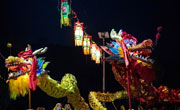Rio de Janeiro(Brazil)
Rio de Janeiro(Brazil)
[Overview] Rio de Janeiro (hereinafter referred to as Rio) is Brazil's second largest city after São Paulo and an important transportation hub of the country. Located in the southeast of Brazil and north of the Tropic of Capricorn, Rio is one of the top three natural ports in the world, with a 636-kilometer coastline along the Atlantic Ocean in the southeast. The city covers an area of 1,204 square kilometers and has a population of 6.52 million.
[Politics] Rio consists of 32 administrative regions (similar to districts in China) and 159 districts (similar to sub-districts in China). The city is governed by the municipal chamber and government. The municipal chamber consists of 51 members who are elected by the constituents directly for a term of four years, and the incumbent president Jorge Felippe, a member of the Brazilian Democratic Movement Party, came into office in 2016. The municipal government consists of such departments as education, insurance, environment protection, finance, household registration, municipal utilities, transportation and culture. The mayor is directly elected by the constituents, also for a term of four years. The incumbent mayor Marcelo Crivella came into office in January 2017.
[Economy] Rio boasts advanced iron and steel, shipbuilding and petroleum industries, and its main industries include foodstuff, metallurgy, electric appliances, machinery, pharmaceutical and textile. There are more than 700 financial institutions in the city, 10 percent of which are branches of foreign banks. Tourism is booming, evidenced by a daily average of 23,000 visitors and 350 travel agencies across the city. Two of the Fortune 500 companies are headquartered in Rio, namely Petrobras and Vale.
[Transportation] Rio has two airports — the Rio de Janeiro International Airport and the Santos Dumont Airport, as well as sprawling roads and railways connecting main cities across the country. There are 49 bus companies that operate nearly 9,000 buses on 449 routes, and 71 taxi companies that operate nearly 20,000 taxis. The subway has a daily ridership of 240,000. As one of the largest ports in South America, the Port of Rio de Janeiro is narrow at the bay mouth and wide inside, and has a 740-meter-long terminal. It is able to house large ships with an annual throughput of nearly 30 million tons.
[Culture and Education] Rio has 1,033 primary schools, 370 middle schools, 53 pre-colleges (equivalent to high schools in China), 6 universities and 47 private universities. It is also home to a raft of art, literature and research institutes, including the Brazilian Institute of Academic Research, Brazilian Institute of History, and Brazilian Academy of Sciences. The National Library of Brazil is the largest of its kind in South America. The Rio Carnival is a world-renowned cultural celebration that lasts three days in mid or late February every year. Rio is also the host city of the 20th FIFA World Cup in 2014 and the 31st Olympic Games in 2016.
[Relations with Beijing] Beijing and Rio officially became sister cities on November 24, 1986, and the two cities have maintained close ties in recent years.
Investment and Trade: In 2013, Beijing held a business cooperation fair in Rio, at which enterprises from the two cities signed agreements in such fields as automobiles and sports. In 2017, another promotion event was held in Beijing, during which the Rio delegation led by Mayor Crivella provided information about projects including a commercial complex in downtown Rio, as well as road lighting and urban development of the city. Representatives from about 30 Beijing-based enterprises attended the event and exchanged views with the Brazilian participants on strengthening business cooperation in key areas.
Olympic Games: In a move to celebrate the upcoming opening ceremony of the Rio Olympic Games and the 30 years of sisterhood between Beijing and Rio, the Rio Olympic emblem was lit at the National Stadium (dubbed “Bird's Nest”) in Beijing at 8 pm on August 4, 2016. The event helped spread the Olympic culture and spirit, and bore witness to the ever closer ties between the two sister cities.
Culture: In 2004, Beijing staged a tourism promotion event and art performances in Rio. In 2018, the Night of Beijing cultural event was held in Rio. Several troupes from Beijing presented brilliant performances, which were well received by international audience by demonstrating the “charm of China, features of Beijing” and blending traditional techniques and modern aesthetics. In 2019, Beijing and the Chinese Consulate-General in Rio De Janeiro co-hosted the 2019 Encounter of Audio-Visual Media Between Beijing and Brazil, an event that attracted nearly 100 representatives from the two countries' government departments and online audio-video companies.
里约热内卢市(巴西)
【概况】里约热内卢市(以下简称“里约市”)是巴西仅次于圣保罗的第二大城市和巴西重要的交通枢纽。位于巴西东南部,地处南回归线北侧,东南濒临大西洋,海岸线长636公里,是世界三大天然良港之一。城市面积1204平方公里,人口652万。
【政治】里约市由32个大行政区(相当于我国的区)和159个居民行政区(相当于我国的街道办)组成。里约市管理机构包括市议会和市政府。市议会由51名议员组成,议员由民选产生,任期4年,现任市议会主席乔治·菲利浦,巴西民主运动党人,2016年就职。市政府下设教育局、保险局、环保局、财政局、户籍管理局、市政工程局、交通局、文化局等部门。市长由民选产生,任期4年,现任市长马塞洛·克里维拉于2017年1月就职。
【经济】里约市钢铁、造船、石油工业发达。主要产业有食品、冶金、电器、机械、制药、纺织等。全市共有700多家金融机构,其中10%为外国银行分支机构。旅游业发达,日均接待游客达2.3万人,有各类旅行社350家。2家《财富》全球500强企业总部设在里约市,分别为巴西石油公司、巴西淡水河谷公司。
【交通】里约市有两个机场,分别是里约国际机场和桑托斯杜蒙特机场。公路、铁路四通八达,连接国内主要城市。有49家公共汽车公司,近9000辆公共汽车,运营449条线路;71家出租车公司,近2万辆出租车。地铁日平均客运量24万人次。里约港是南美最大的港口之一,港湾腹宽口窄,码头长740米,可供巨轮停泊,年吞吐量近3000万吨。
【文化教育】里约有1033所小学,370所中学,53所大学预科学院(相当于我国的高中),6所综合性大学,47所私立大学。里约拥有众多的艺术、文学和科研机构,包括巴西学术研究院、巴西历史研究所、巴西科学院等。里约有南美洲最大的图书馆——巴西国家图书馆。里约狂欢节是举世闻名的文化庆典活动之一,每年二月的中旬或下旬举行,为期3天。里约是2014年第20届世界杯足球赛和2016年第31届夏季奥运会举办城市。
【两市交往】1986年11月24日,北京市与里约市正式建立友好城市关系。近年来,两市交往密切,关系发展顺利。
经贸领域:2013年,我市在里约市举办“北京·里约合作洽谈会”,两市企业共同签署汽车、体育等领域的合作协议。2017年,“北京—里约推介洽谈会”在京成功举办,里约市长克里维拉率团出席活动并推介里约市中心商业综合地产、里约市道路照明、里约城区开发等项目。北京市约30余家企业代表参加活动,与巴方就加强重点领域经贸合作深入交换意见。
奥运领域:2016年,为迎接里约奥运会开幕并庆祝北京市与里约市结好30周年,里约奥运会官方会徽点亮国家体育场(鸟巢)活动于8月4日20点在鸟巢举行,活动传递了奥运文化,弘扬了奥运精神,还成为两市友好城市关系发展的重要见证。
人文领域:2004年,我市在里约市举办旅游推介会和文艺演出活动。2018年,“北京之夜”文化演出在里约举行,我市多个演出团体共同为里约观众奉献了一场展现“中国气派、北京特色”的文艺表演,传统技艺与现代审美交相辉映,民族艺术在国际演艺中熠熠生辉。2019年,北京市与驻里约总领馆共同主办“2019北京优秀影视剧海外展播季—巴西启动仪式”,两国相关部门和网络视听从业机构代表近百人出席了活动。
(Source: Foreign Affairs Office of Beijing Municipal Government)
[ Editor: WPY ]










More From Guangming Online
Medics from Fujian leave for Shanghai to aid in battle against COVID-19 resurgence
New int'l land-sea transport service to Indo-China Peninsula launched
Another makeshift hospital under construction in Shanghai
Tourists view tulips in Suiping County, Henan
In pics: blooming gagea flowers on grassland in Zhaosu, Xinjiang
Greek workers stage 24-hour general strike over high prices